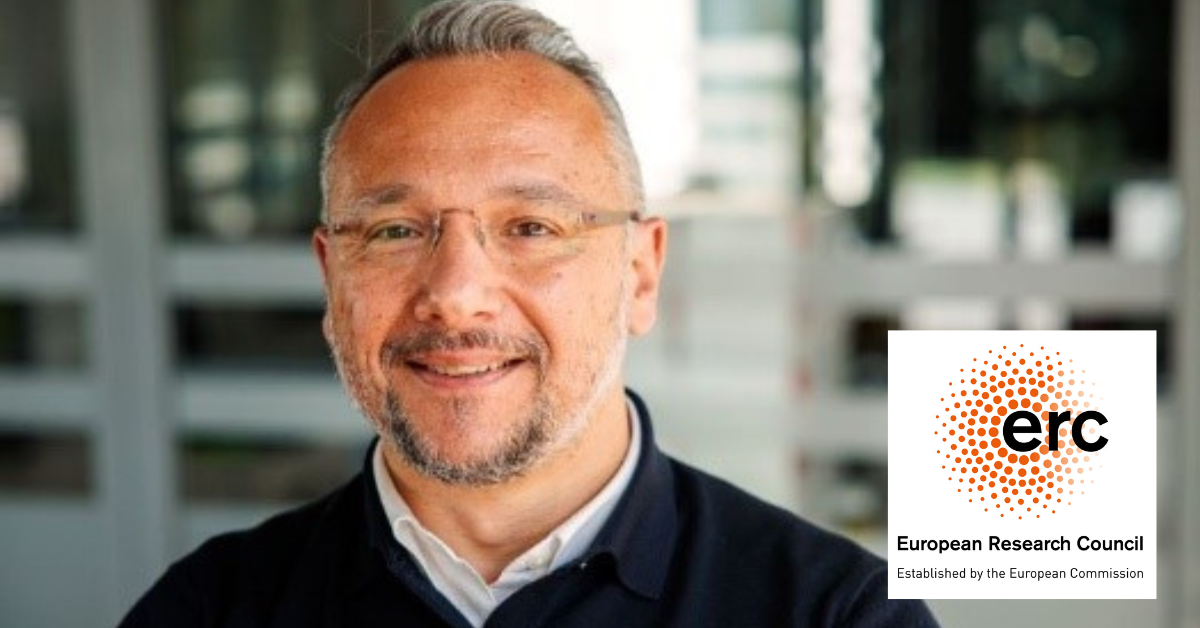Tuesday, 05 November 2024
First-ever ICN2 ERC Synergy Grant to Prof. Kostas Kostarelos and the Nanomedicine Lab
Kostas Kostarelos, ICREA Research Professor and Severo Ochoa Distinguished Professor, has been awarded one of the European Research Council's prestigious Synergy Grants 2024 to co-develop the SKIN2DTRONICS project, which aims to integrate conformable electronic devices based on 2D materials to monitor brain cancer recurrence.

The European Research Council (ERC) Synergy Grants are among the most prestigious research awards in Europe, designed to support exceptional collaborative projects tackling major scientific challenges. Each Synergy Grant funds teams of two to four principal investigators from across disciplines, encouraging groundbreaking interdisciplinary research. The grant selection process is highly competitive, with only a small percentage of applicants awarded funding (typically between 7-10%), which emphasizes the outstanding quality and innovative potential required for selection.
These grants not only provide substantial financial support but also bring significant recognition to researchers and their institutions on an international scale. This is the first time for an ICN2 group to be awarded an ERC Synergy grant.
In the case of Prof. Kostas Kostarelos, a total of €10M funding will be dedicated to the development of the SKIN2TRONICS project, together with researchers Prof. Gianluca Fiori (Università di Pisa), Prof. Andrés Castellanos (Instituto de Ciencia de Materiales de Madrid-CSIC) and Prof. Andras Kis (École Polytechnique Fédérale de Lausanne).
About the SKIN2DTRONICS Project
The SKIN2DTRONICS project aims to advance the large-scale integration of soft and thin electronic devices with more than 1000 transistors on ultra-flexible, skin-like substrates. These devices, based on two-dimensional materials that are one atom thick, are engineered to be readily conformable to different surfaces of aberrant architectures. They will be designed to offer superlative electronic performance, mechanical strength with full biocompatibility.
The project responds to the need to integrate electronics into applications such as health monitoring and sensing. SKIN2DTRONICS will integrate transistors directly onto ultra-flexible substrates, aiming for a fully integrated signal processing sensing circuit. The project will attempt address a clinical unmet need: real-time monitoring of growth and recurrence of brain tumours after surgery.
At ICN2, we are thrilled to celebrate the award of the ERC Synergy Grant to Professor Kostas Kostarelos. This recognition highlights his exceptional contributions to developing advanced materials and devices that intersect cancer monitoring and diagnostics with brain implants and neurotechnology.
About the ERC
The ERC, set up by the European Union in 2007, is the premier European funding organisation for excellent frontier research. It funds creative researchers of any nationality and age, to run projects based across Europe. The ERC offers four core grant schemes: Starting Grants, Consolidator Grants, Advanced Grants and Synergy Grants. With its additional Proof of Concept Grant scheme, the ERC helps grantees to bridge the gap between their pioneering research and early phases of its commercialisation. The ERC is led by an independent governing body, the Scientific Council.
The 2024 Synergy Grants will support 57 projects from 548 proposals submitted, involving 201 researchers. The projects will tackle some of the most complex scientific problems of our time. They cover a wide range of disciplines and will be based in 184 universities and research centres in 24 countries across Europe and beyond. 11 of these projects involve researchers based in Spain. Iliana Ivanova, European Commissioner for Innovation, Research, Culture, Education and Youth, stated: "Innovation thrives on collaboration, especially when tackling the pressing scientific challenges of our time. The ERC Synergy Grants work with Horizon Europe funding to connect brilliant minds across borders and disciplines, enabling them to push the frontiers of knowledge together. "

